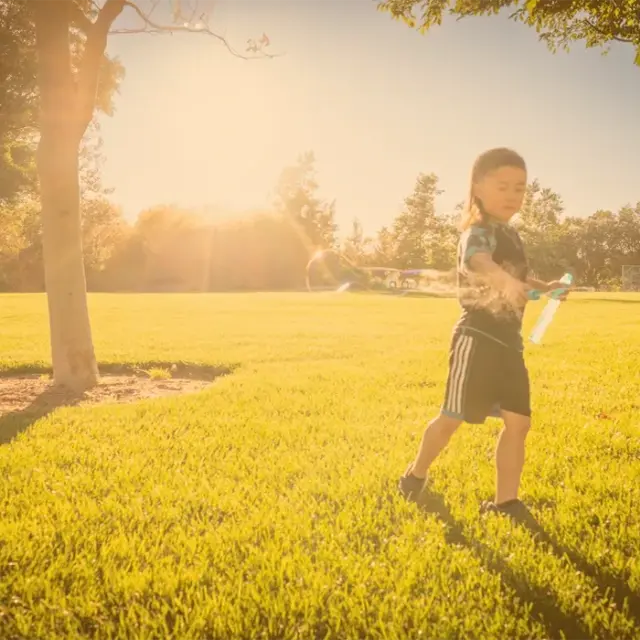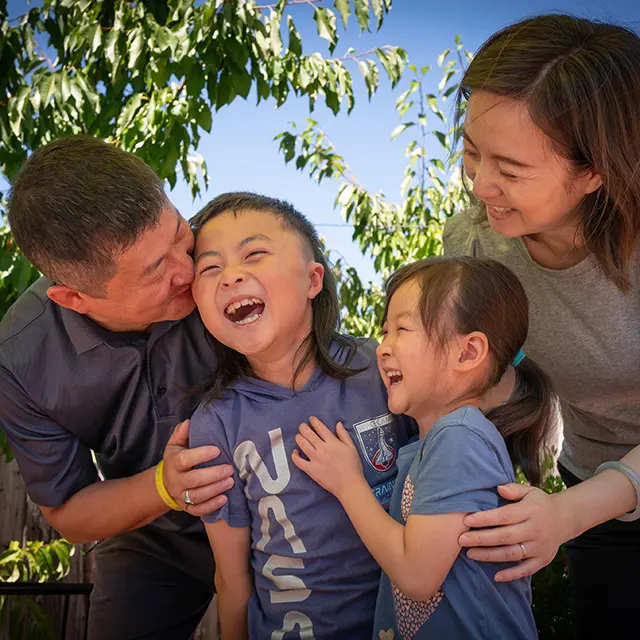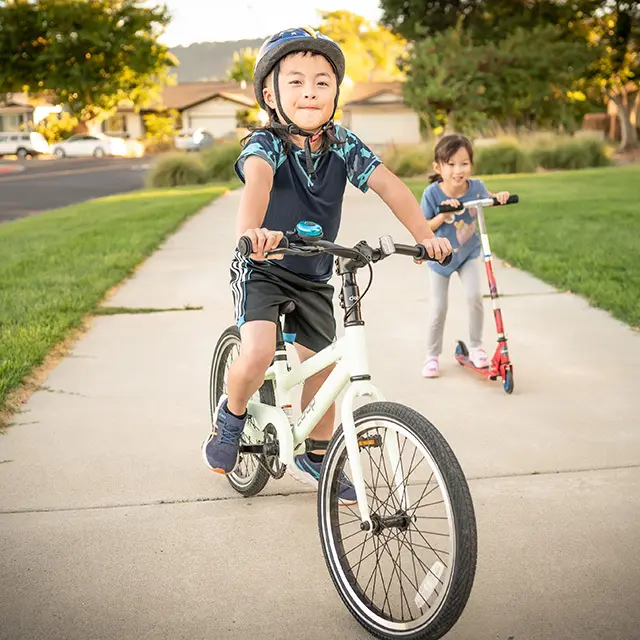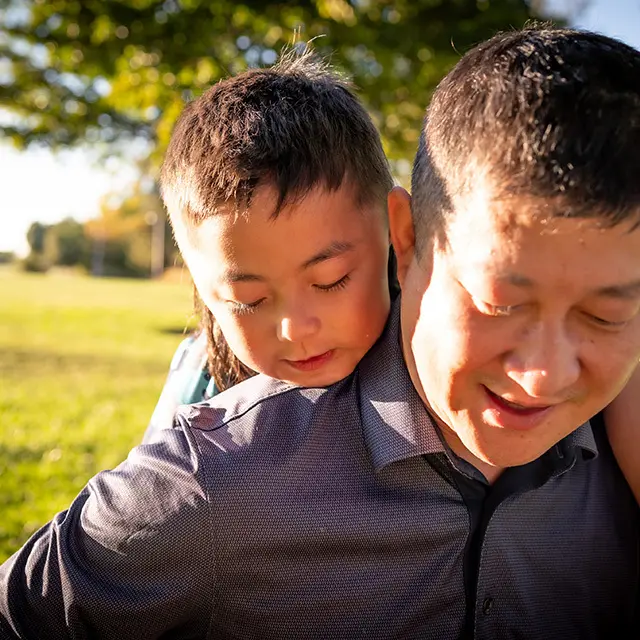Meet Max and his Family

Max | Living with Duchenne
As seven-year-old Max fearlessly learns to swim at the community pool in Pleasanton, CA, his father Tao looks on with immense pride. Living with Duchenne muscular dystrophy (Duchenne), a genetic disease that progressively weakens the muscles in the body, Max has faced some unique challenges throughout his childhood. For most, the effects of Duchenne would have taken hold by age seven – making it difficult to walk and climb stairs – but Max’s symptoms have been delayed thanks to his participation in a clinical trial. For Tao to see his son thriving in ways that once seemed impossible offers hope, while serving as a reminder of the progress that remains necessary for Max to have access to a future treatment.
“We cannot appreciate enough how lucky we were. Max may be part of the first generation to re-write the natural history of Duchenne.” —Tao, father

Before the Diagnosis
Max’s parents Tao and Xi were living in Beijing when they welcomed their son. "He was very playful," Tao remembers. "Very cute." Shortly after Max’s first birthday, Tao was offered a job in California and relocated to find a home for the family while Xi stayed back in China with Max. Tao began a taxing period straddling continents, working in the US and returning to his family as often as possible.
As Max grew, Xi and Tao noticed that he was developing at a slower pace relative to other children his age. A routine test performed in preschool revealed that Max had enormously high levels of an enzyme called creatine kinase (CK), pointing toward the possibility of a neuromuscular disease. "It was a very dark time," remembers Tao. "We had no idea what it was, but what we were seeing online caused us to worry that it was something serious."

The Search for a Treatment
A few months after the birth of Max’s younger sister, Raphael, when Max was 3, Tao brought him to California for a series of evaluations, including a genetic test that confirmed the diagnosis of Duchenne. "We struggled to learn that this was happening to Max," says Tao. "We didn’t know much about clinical trials or new treatments at that time. All we saw online was a very negative story—very scary prospects."
While there was no cure for Duchenne, advances in treatment and care over the last 20 years had greatly improved the quality and longevity of life for people living with the condition—and newer therapies were on the horizon. Fortunately for Max and his family, many of the cutting-edge clinical trials were taking place in the US. "We were lucky, in part, because of our location," says Tao. Since Max’s genetic variation makes him amenable to exon 44 skipping, none of the approved treatments at the time were an option. Tao then turned to clinical trials evaluating gene therapies and fortunately, there were studies actively recruiting young boys with Duchenne.

An Optimistic, Yet Cautious Path Forward
Since beginning gene therapy treatment, Max’s symptoms have not progressed and he’s been able to walk his dogs Cindy and Daodao, play with his younger sister Raphael at the park and learn to swim at the neighborhood pool. "He can run and jump much better than before," says Tao. "He can do a lot of things just like normal kids." Max proudly embraces his role and responsibilities as big brother, helping both his sister and mother learn to speak English now that they’ve made the anxiously awaited move to California, following the lift of travel restrictions between the US and China in 2022.
While Max’s family is incredibly grateful that he was selected to participate in the trial, Xi and Tao recognize it is not a permanent solution and the effects of the treatment will diminish. "Gene therapy is not a cure," says Tao. "We still need to find the next step for him." Max understands that because he has Duchenne, he needs to be mindful of his health. "It’s important for me to go to the doctors because my muscles are weaker than others," says Max.
In pursuit of a curative treatment for Max, Tao regularly attends Duchenne-focused conferences – speaking with the researchers and companies advancing therapies with the potential to offer Max a healthier future. Tao and Xi are tireless advocates for the Duchenne community and constantly push for improved access to treatments as well as policy changes to speed up the often lengthy drug development process. "It’s the least we can do to repay the fortune we were given," says Tao.
As one of the first boys with Duchenne to receive gene therapy, Max is redefining what’s possible for those living with the condition and is paving the way for future breakthroughs in the treatment of this serious disease. "We cannot appreciate enough how lucky we are," relays Tao. "Max may be part of the first generation to re-write the natural history of Duchenne."
More Stories
At Entrada, we believe that your voice and story are essential. Each individual’s unique experiences help us learn more about unmet needs, enabling us to develop medicines that can have the greatest impact. Meet some of the inspiring families who have shared their stories with us.
Connect With Us
Every Entradan is united in our shared passion for connecting with patient communities. We attend and host meetings in order to listen, learn, and work towards solutions. We’d love to connect with you! Contact Sarah Friedhoff, our Head of Patient Advocacy, at patientadvocacy@entradatx.com.
To learn more about how we honor your privacy, click to see our Privacy Notice








